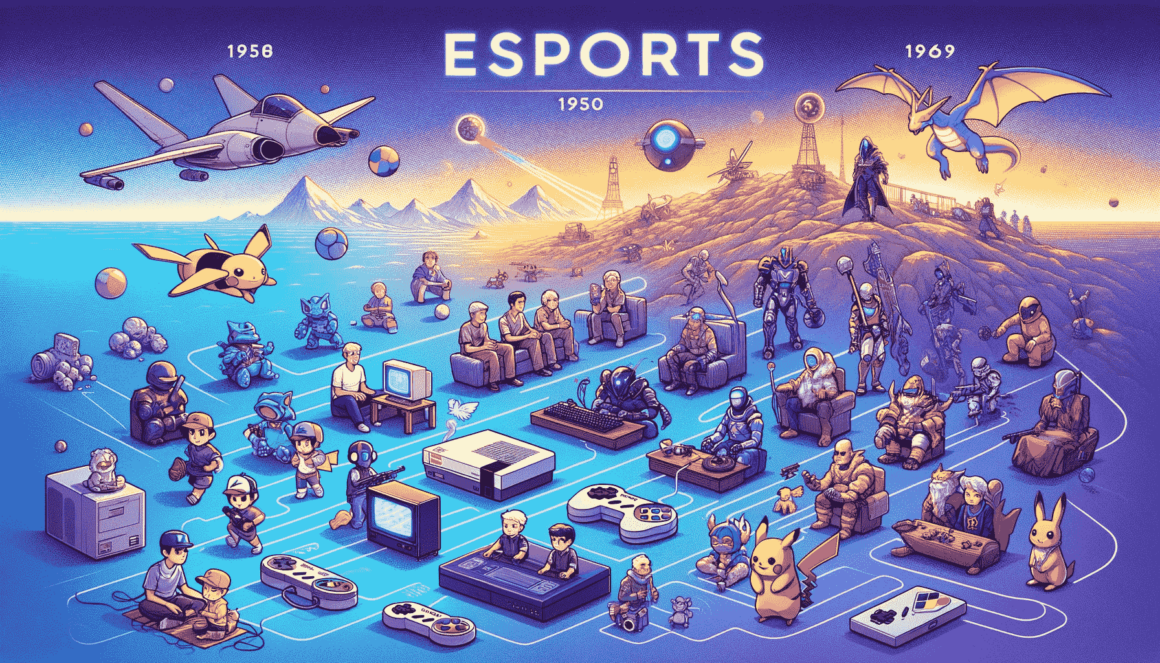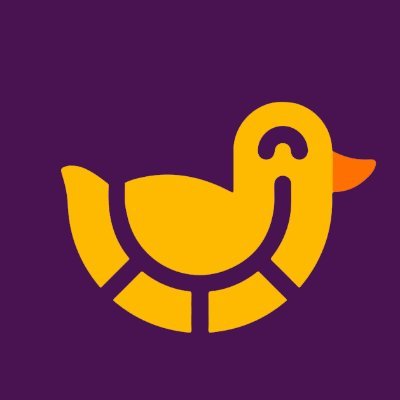Evolution of Online Gaming: The History of Esports
Esports have become increasingly popular as hardware, graphics, and internet availability have improved. Its history is simple, and it has been present for a while due to games like League of Legends, Pokémon Unite, DotA 2, and Overwatch.
The foundation for video games was created in the 1950s, long before the popular DoTA, League of Legends, and Overwatch. However, with the creation of competitive video gaming teams, the race to the top among pro gamers has become more apparent.
Let’s explore the history of Esports and the future of this growing sector in the twenty-first century.
Esports History Timeline

Esports has witnessed a dramatic transition over several decades, fueled by technological innovation. This timeline of Esports history spans numerous decades, from the early 1950s to today’s mainstream status.
Let’s delve into the journey that has shaped the landscape of Esports from its humble beginnings up to where it is now.
The 1950s: The Beginning of the Computer Era
OXO, commonly known as tic-tac-toe, is a popular classic game. It was first released in electric form in 1952 by Alexander Shafto Douglas, making it one of the earliest forms of computer games ever.
Tennis for Two is also a pioneering video game developed by William Higinbotham in 1958. The oscilloscope screen showed the tennis simulation, and participants used an early joystick to control their shots and get the ball over the net.
These two games have marked the beginning of competitive video gaming and are recognized as an important milestone as the next decades step in.
The 1960s: Themed Games and Tournaments Held
The esports foundation began solidifying at the turn of a new decade.
At this time, a game called “Spacewar!” was released. The game mode consisted of a battle between two players, each controlling a ship. This game was an early contender in Esports tournaments.
SpaceWar! not only paved the way for subsequent generations but is still being recognized 40 years after its initial release for the legacy it created.
As the next decade approached, more significant events emerged after the success of SpaceWar!
The 1970s: The Rise of Game Tournaments.
The technology used in video games has evolved, paving the way for bigger events. Some corporations noticed the rising popularity of the tournaments once they were broadcast globally.
When esports first emerged, the Intergalactic Spacewar Olympics was a major title. More than twenty-four competitors competed in the contest.
Early competitions were often exclusive to students in universities. However, the 70s would also mark the golden age of the console. The Magnavox Odyssey was the first game designed specifically for TV. This would be a defining moment for esports’ evolution.
During this time, arcades were also developed. Games like Pong, Sea Wolf, Asteroids, and Starfire were transmitted for the first time in the 1970s. High-score tournaments were introduced due to the absence of multiplayer options.
Next, in 1978, Atari made history by hosting the first-ever international Esports championship with their football game, pioneering the concept of high score lists and player rankings.
The 1980s: Gaming Boom, Gender Disparities, and High Scores List
The 1980s witnessed a booming era for the gaming industry. Iconic titles like Pac-Man, Donkey Kong, and Space Invaders captivated players worldwide. However, this era also marked a significant gender disparity in the tech and gaming sectors.
Despite significant contributions from women in the early part of the decade, their presence sharply declined by the mid-1980s. This decline was especially prominent in the gaming sector, where women’s representation dwindled to just 3% by the decade’s close. The persistence of these disparities highlighted the ongoing need for greater inclusivity and diversity in both tech and gaming, a challenge that remains relevant today.
In 1979, Asteroids and Starfire were the first games featuring a high score list where players could permanently attach their results. The restricted number of computers that permitted players to participate made these rankings a credible measure of competence.
Atari launched the first big Esports event with Space Invaders. At the 1980 Space Invaders Championships, nearly 10,000 gamers fought for a copy of Asteroids.
Space Invaders and Esports
William Heineman won the Space Invaders Championship, besting over 10,000 competitors. It was only in 1982 when Armin Stürner founded the Atari VC Bundesliga.
Atari’s rapid expansion gave it market supremacy, while other companies followed. This three-year span paved the professional Esports sector.
The 1990s: The Emergence of Esports in the Internet Era
Internet access expanded in the 90s. Several Esports opportunities arose as accessibility spread substantially. Companies like Nintendo and Blockbuster Video established this as an opportunity for competition with new titles.
Games like Pokémon, Tetris, Super Mario Bros., Sonic, and Virtual Racing debuted in the 1990s. SEGA and Super Nintendo Entertainment Systems also emerged.
In this decade, rivalries in the Esports industry flourished. New computers and better consoles were released on the market. Esports became even more popular when the games like Doom, Quake, Unreal Tournament, StarCraft, and Age of Empires appeared.
The excitement at the modernization brought more intensity to gaming as the new century approached.
The 2000s: Onset of MOBA Games and MMORPG.
The year 2000 saw the most remarkable technological exploration in human history. As a result, Esports gained global recognition, and legislation was enacted to control the growing industry.
Newer versions of classic games were released for computers, and video game tournaments increased. Real-time strategy (RTS) games like Age of Empires, StarCraft, and Warcraft III dominated the scene.
Later on, Defense of the Ancients (DotA) became the first wildly successful multiplayer online battle arena (MOBA), giving birth to more esports athletes.
The 2010s: Streamers Began And the Birth of League of Legends.
Twitch was the first big streaming service for broadcasting Esports. Both solo gamers and major esports events followed suit. After a while, the number of viewers skyrocketed to 45 million, marking a milestone moment in the evolution of Esports.
With the birth of League of Legends (LoL) on October 27, 2009, DOTA 2 finally had a rival. LoL became one of the most popular games in competitive gaming, and the best players were considered “professional gamers.”
Due to this, new Esports have emerged and evolved, like Call of Duty, Counter-Strike, and StarCraft II. As technology improved more in the next decade, support and sponsorships boomed.
The 2020s: Esports Streamings and Bettings.
Inevitably, the emergence of better consoles will expand the current market for video games. More Esports tournaments will be held locally and internationally.
In this decade, Esports has quickly become a part of university events. Games like Wild Rift, Mobile Legends: Bang Bang, Arena of Valor, Pokémon Unite, and Marvel Superwar are being streamed online. This marked the massive leap of Esports when it was first introduced to universities in the 1970s.
Esports betting has grown, giving famous bookmakers a new market. New backers, new ideas, and established players will demand more.
Closing Remarks
Since its origins in the early 1950s, Esports history has gone a long way. What began as a niche hobby for a small group of fans has grown into a multibillion-dollar industry with a worldwide audience.
With the release of the first electronic game, OXO, to the emergence of multi-million dollar games like DotA and LoL, Esports has evolved significantly, making it a powerful player in the future market.
While the fate of Esports is unknown, one thing is sure: its influence on the entertainment industry and popular culture is evident.
FAQ
What’s the importance of Esports?
With the rise of esports, students now have access to more possibilities to study and develop a deeper conceptual grasp of Esports, marking the age of technology and modernism.
Why Esports is the future?
Esports have transformed traditional sports, changing how people watch and play. Esports has created a whole new business and many opportunities for future generations.
Is becoming a gamer a job?
Professional gaming requires no education or certifications. Mostly, gamers rely on their skills. Many gamers make a living streaming on YouTube and Twitch.
 BC.Game
BC.Game  7Bit
7Bit  Ducky Luck
Ducky Luck  Red Dog
Red Dog